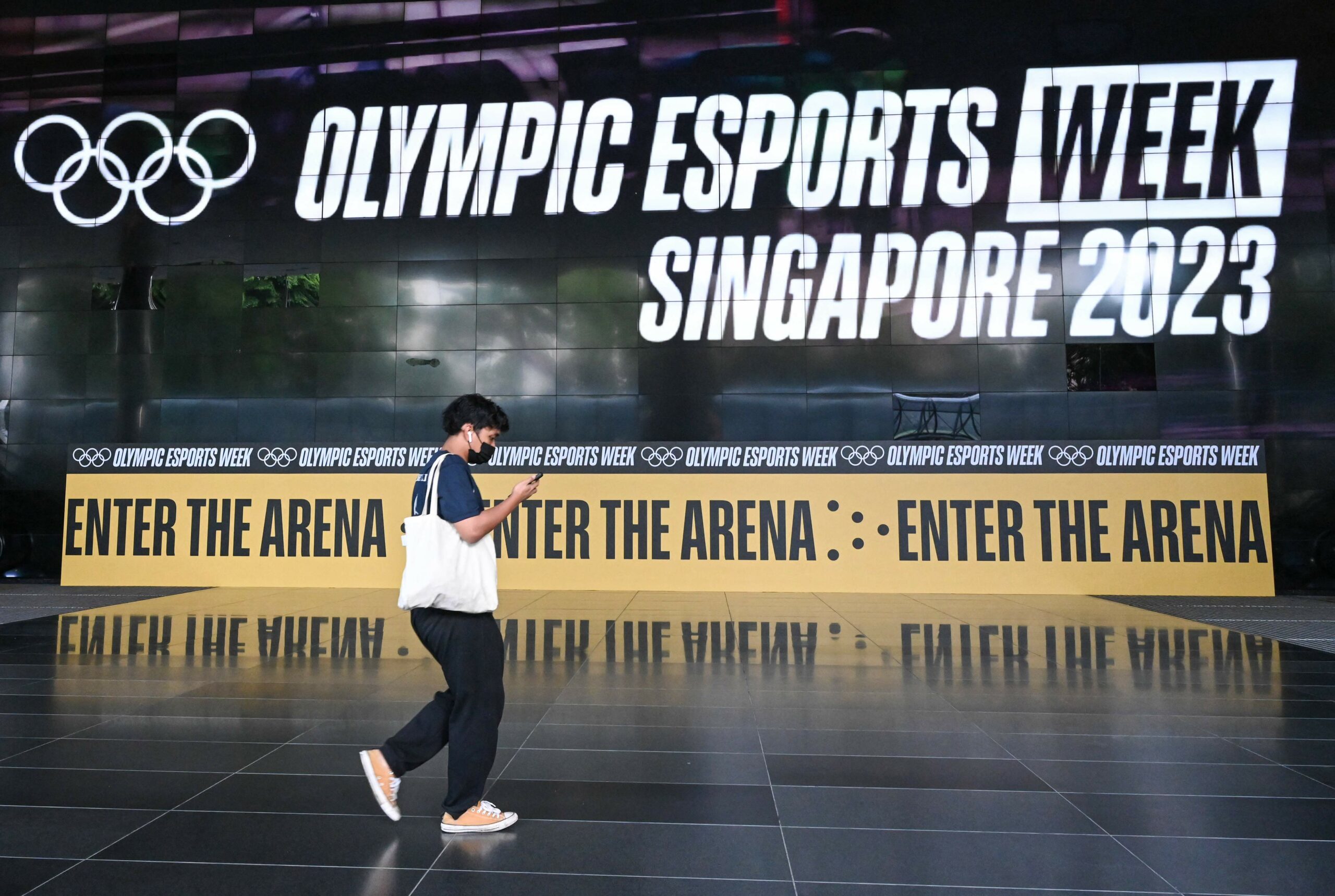SINGAPORE (AFP) – E-sports has long been derided as “not a real sport”. But now, an Olympic-organised event is being dismissed by competitive gamers as not real e-sports.
Many long-time backers of big-money digital contests, which are edging their way towards elite-level recognition, are puzzled by the choice of games at the inaugural Olympics E-sports Week that kicks off in Singapore on Thursday.
Instead of well-established gaming titles, it will feature 10 simulated sports, among them archery, baseball, chess and taekwondo.

Aficionados are concerned with the choice of virtual sports – that is, digital recreations of real-world events – rather than e-sports, which are essentially video games played at an elite competitive level.
With popular video games such as Counter-Strike and DOTA 2, e-sports has been booming over the past decade.
Matthew Woods from esports marketing agency AFK said the disappointment over the Olympics E-sports Week “spawned from the fact that none of the games selected were games that anybody in the industry really considered to be e-sports”.
Malaysian professional esports coach Khairul Azman Mohamad Sharif agreed, saying he found the list baffling.
“I don’t think these sports games should be highlighted at the competition compared to top e-sports games, considering these types of sports are already physically contested,” he said.
The only saving grace for some is that the shooting event will involve the globally loved Fortnite, but in a version without its kill-or-be-killed “Battle Royale” mode.
That modification is because the International Olympic Council (IOC) cannot feature titles that go against Olympic values, so a lot of popular video games with violence are out.
The IOC officially recognised e-sports as a sport in 2017 and has been in discussions with industry players about inclusion on the most prestigious stage.
Such changes tend to happen slowly but the IOC has opened new frontiers recently, with skateboarding at the Tokyo Games and breakdancing at Paris 2024.
E-sports will be a medal sport for the first time at the upcoming Asian Games in Hangzhou.
Describing the list of games as “a very sensible first approach”, vice-president of the Global E-sports Federation and CEO of British E-sports Chester King said the Singapore event would be a positive step in eventually putting popular video games on the Olympic roster.
“This is the first event and we’ve got to make sure all the stakeholders in the IOC accept it and like it,” he said.
Bryan Tan, a partner at law firm Reed Smith, which specialises in e-sports and media, said the event in the city-state “is also a testing ground to iron out the kinks involved in bringing esports to the Olympic level”.
IOC sports director Kit McConnell told AFP that the choices were made to support virtual sports.
“This is why we have focused first on virtual and simulated sports games in the competition series,” he said. He added that selected games had to be inclusive with no technical barriers to entry and have gender equality, which is “often not yet the case in the field of competitive gaming”.
If popular video titles do make it to the Olympic level with top players, the Games will stand to potentially draw millions of fresh viewers.
But a major challenge could be navigating intricate relationships with publishers of popular games.
AFK’s Woods said publishers are “commercial enterprises which own the IP that their games are built on and therefore have an unlimited amount of influence into who hosts events and how this is done”.





